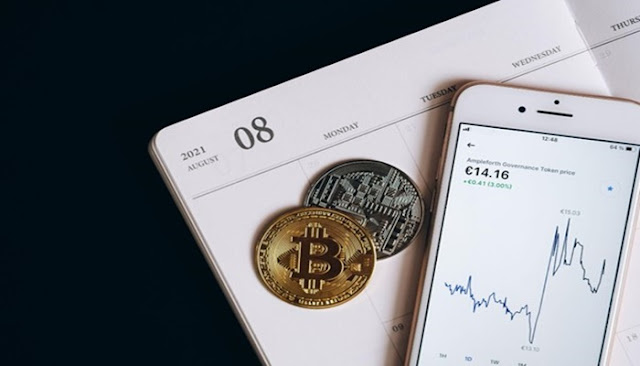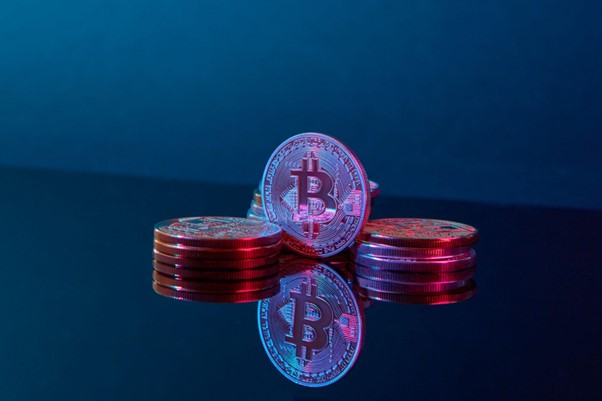Have you always been intrigued by crypto trading? Whether you’ve traded before or not, there may be plenty that you still don't know when it comes to crypto wallets, brokers, the crypto market, and everything else related to the buying and selling of crypto.
Too often, traders leap into the crypto market without doing any research or preparation. It’s important to learn as much as possible about all things related to cryptocurrency so you avoid mistakes, fall for scams, or jeopardise the security of your crypto holdings.
We understand that this can feel overwhelming if you’re still taking your first steps or have only started to consider becoming a crypto trader. That’s why we’ve compiled a selection of easy-to-understand answers to questions that you might have regarding crypto and trading. Keep reading to learn the answers to common questions about cryptocurrency trading to help you become a confident and knowledgeable trader!
Answers to Common Questions About Cryptocurrency Trading
If you want to discover more about cryptocurrency trading and start (or continue) your journey to becoming an experienced trader, check out these answers to common questions about crypto trading!
→ 1) Is It Safe to Trade Crypto?
Due to the unregulated nature of crypto, you may be rightfully concerned about the safety of crypto trading. The good news is that it can be safe to trade crypto so long as you are aware of risks and follow best practices to keep your assets secure. Luckily, blockchain is inherently secure, and all traders are pseudonymous when making crypto transactions.
Since many cryptocurrencies have become incredibly valuable and the industry has soared in popularity, fraudsters have flocked to the crypto world with attempts to steal assets from traders through carefully planned scams. Common scams prevalent in the crypto industry include phishing scams, pump-and-dump schemes, fake giveaway scams, and fake crypto exchanges. Be sure to research each of these scams before proceeding with your crypto trading to learn how to identify the signs of these scams and successfully avoid them!
→ 2) What Is a Crypto Wallet?
It’s a common misconception that crypto wallets physically store your cryptocurrency, similar to how real-life wallets hold your cash. Instead, a crypto wallet is where your private keys are stored and allows you access to your crypto holdings. Meanwhile, your crypto is stored on public blockchain networks. A crypto wallet is necessary for all traders, as without one, you cannot access your cryptocurrency.
You can choose between two main types of crypto wallets, hot and cold. A hot wallet is a software-based wallet that is connected to the internet, whilst a cold wallet is a physical wallet that is not connected to the internet. Depending on which type you have, your wallet can also let you manage your crypto balance and perform certain actions, such as buying and selling crypto or interacting with decentralised applications (dApps).
The best wallet for you depends on many factors, including your trading experience level, budget, and how many coins you intend to own. Hot wallets, for example, are typically free and much more convenient to use, making them ideal for beginner traders. However, they are much less secure compared to cold wallets. Cold wallets are more suitable for long-term storage and less vulnerable to cyber threats than hot wallets. However, cold wallets have a limit to how much cryptocurrency they can store and often require a purchase of between £50 - £200.
→ 3) What Is a Cryptocurrency Broker?
A cryptocurrency broker is an individual or firm that acts as an intermediary for traders who want to buy and sell crypto. Although brokers charge a fee for their services, their services are definitely worthwhile, especially for new traders. By providing a beginner-friendly environment for first-time traders to start building a crypto portfolio, brokers can make crypto trading seem much less daunting and overly complicated.
The best crypto brokers will have a vast range of services, state-of-the-art security measures, an easy signup process, and top-notch customer support. Unfortunately, the crypto industry is plagued by fraud that masquerades as brokers and intends to scam unsuspecting traders. Therefore, you must be extremely careful when deciding on a broker to use.
If you think using a crypto broker will be beneficial but are unsure how to find a suitable and credible one, then you can sign-up for a crypto platform.They are designed to connect traders with brokers that offer a wide section of services through initiative platforms. This is the recommended way to begin your crypto journey if you’re never traded before and want to build up your crypto portfolio whilst utilising the resources and tools provided by a financial intermediary.
→ 4) What Does HODL Mean?
The term ‘HODL’ originated from the Bitcointalk forum in 2013 when a user misspelt ‘holding’ in the title of their post. The post title “I AM HODLING” quickly became the basis for the ‘HODL’ meme in the crypto community.
Fast forwarding to the present day, HODL is now used as an acronym for “hold on for dear life”. This refers to an approach used by traders whereby they continue to hold onto their crypto assets and do not sell them even when prices fall.
Aside from being a meme that traders use to acknowledge their own lack of skill when it comes to short-term trades, the HODL approach has actually helped investors to survive the rollercoaster of crypto price fluctuations. Seen as more of a mentality as opposed to an investment strategy, HODLING has encouraged many traders to refrain from cashing out when prices rise and giving up when they fall.
→ 5) What Influences the Value of Crypto?
Many factors influence the value of various crypto coins. As opposed to fiat currencies, crypto is decentralised and is not backed by any central authority. This means that crypto coins derive their value from factors such as their use cases, production cost, availability, regulations, and competition. Supply and demand is another key factor that can determine a coin’s value. For instance, if demand increases faster than supply, the price of a coin will increase.
Popularity can also drive up the value of cryptocurrency, as proved by memecoins. Typically, memecoins have no real-world use cases, but many have had periods of rapidly increasing in price due to their online popularity. Social media plays a key role in the hype and popularity of crypto coins, as proved by Elon Musk. When Musk tweeted his support for the memecoin, Dogecoin (DOGE), on Twitter, the coin’s price skyrocketed.
→ 6) Is It Easy to Make a Profit From Crypto Trading?
Although it may be easy to set up a crypto wallet, buy crypto, and begin establishing a cryptocurrency portfolio, it’s definitely not as easy to make a profit from your crypto investments. It is a common misconception that trading crypto is the path to easily making money, but this is, unfortunately, far from the truth.
Firstly, first-time traders can’t just dive in and start profiting from various coins they’ve picked at random. It’s important to carefully research each coin you’re thinking of investing in to learn more about the project, the development team, and the planned future of the coin. Additionally, researching the history of crypto and the crypto market will help you to understand how unpredictable cryptocurrency can be.
If you’re thinking of investing in crypto just to make a massive profit, then be warned! Cryptocurrency is notoriously volatile, and it's possible for traders to lose their entire capital in the blink of an eye! You have to be prepared to lose your money and understand all the risks associated with trading before investing in any crypto. To be completely honest, we’d say that losing your capital is easier than making a profit from crypto, especially if you’re an inexperienced trader.
→ 7) Should I Invest in Crypto?
This is the most difficult question of all, as the answer can depend on multiple factors. If you’re interested in investing in crypto but haven’t before, then don’t worry, as there are plenty of beginner-friendly resources that you can access online. Building up a diversified portfolio and choosing from thousands of different crypto coins is simple enough as long as you set yourself clear goals beforehand.
However, we can’t tell you if you should invest in crypto or not, as this is a question you should ponder alone. If you’re still unsure if crypto trading is suitable for you, you should consider several factors, including your risk tolerance, current financial situation, and reasoning for wanting to trade.
If you have decided that you’re ready to face the unpredictability of the crypto market and are prepared to put in the hard work regarding research and time allocation, then welcome! It’s time for you to start making your first steps towards being a crypto trader!
Conclusion
To summarise, now you know the answers to 10 frequently asked questions about crypto trading! We hope you can apply all the knowledge you’ve gained to help you build confidence when trading and begin your venture as a cryptocurrency trader.
As we’ve previously mentioned, if you want to become a successful trader, then you need to dedicate time to researching crypto as well as actively trading it. That being said, trading crypto can be profitable, and it is a fantastic asset to invest in due to many coins having unique real-world use cases. By understanding the purpose, uses, and safety of crypto, you can make more informed decisions regarding trading. This can help to increase your chances of making a noticeable profit from your crypto investments. Just remember, preparation and research are key!


No comments:
Post a Comment